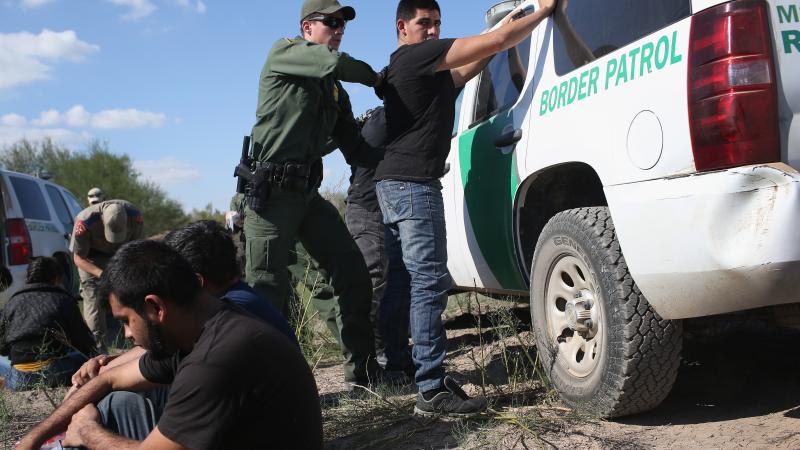States give accused students due process as Biden prepares to revoke Trump protections
Vast majority of Americans support protections that Department of Education regulation, likely to drop in less than a month, would remove. Utah, Kentucky laws passed with strong bipartisan support.
A month before the Biden administration is expected to release Title IX rules that revoke the Trump administration's due process protections in sexual-misconduct proceedings, state legislatures and public opinion are undermining the federal revanchism.
Utah is the latest state to protect the rights of accused students in all manner of disciplinary proceedings, and similar legislation is pending in New Hampshire and Wisconsin.
A national poll commissioned by the Foundation for Individual Rights and Expression, whose model bill Utah codified, finds that solid majorities support comparable protections for accused students in campus proceedings as they would have in a court of law.
The greatest support was for the right to hire a lawyer to actively represent students in investigations and hearings, at 79%. Almost as many (74%) agreed that "government should be equally concerned" about the rights of accusers and accused, while just 13% disagreed.
“Americans don’t only support campus due process rights in the abstract. They support the specific due process protections the new Title IX regulations would roll back,” FIRE Chief Research Advisor Sean Stevens said.
Thirteen years ago last Thursday, President Obama's Department of Education threatened to withhold federal funding from colleges that did not give preference to accusers, overwhelmingly female, in campus proceedings, especially by lowering evidence standards, sidelining lawyers and putting one official in charge of investigating and decision-making.
Holdouts including Princeton quickly folded despite the "Dear Colleague" guidance letter not having the force of law, setting off a torrent of litigation by accused students, overwhelmingly male, against their colleges.
They won a string of legal victories that gave momentum to similar protections enshrined in binding regulation issued by Trump's department six months before the election, which gave students the right to hire lawyers, cross-examine accusers, live hearings and the same evidence standard faculty enjoy, which is typically higher.
Live hearings and cross-examination, among other provisions, are on the chopping block in the draft regulation, which the department sent Feb. 2 to the Office of Information and Regulatory Affairs. By statute, OIRA has 90 days to review draft regulations, meaning it should be ready by May 2.
Kentucky gave an early suggestion that federalism might create problems for the Biden administration when the regulation was under development. Democratic Gov. Andy Beshear signed a bipartisan campus due process bill into law two years ago this week.
A former FIRE intern helped organize cross-ideological support for the Bluegrass State legislation, from Republican, Democratic, pro-life, pro-choice and LGBTQ student groups.
The Utah law (HB 414) is based on FIRE's model bill, the civil liberties group said in a press release.
It guarantees the right to "active legal representation" by advocates including attorneys and a "presumption of innocence" until the student confesses or school proves "every element of the alleged violation at a student disciplinary proceeding," gives accused students notice of their rights and prohibits "comingling of roles" to prevent conflicts of interest, such as the so-called single-investigator model in which one official plays judge and investigator.
Accused student organizations have the same rights as individual students, and schools must fork over all "material evidence" in their possession to both parties, "inculpatory and exculpatory," at least a week before the proceeding begins.
The law authorizes the attorney general to bring cases against colleges that don't comply.
Similar to the Kentucky law, the Beehive State bill drew sweeping bipartisan support, passing the Senate unanimously and the House with only two "no" votes, and GOP Gov. Spencer Cox signed it last month. Tyler Coward, FIRE's lead counsel for government affairs, helped present the bill at a committee hearing in February.
Stop Abusive and Violent Environments, which advocates for due process in student and faculty disciplinary proceedings, counts seven states including Utah with "broad scope" campus due process laws and six with "narrow scope" laws.
The New Hampshire bill (HB 1288) passed the House on a near-party line vote Feb. 22. The Wisconsin bill (SB 575), which also includes free speech and academic freedom provisions but pertains only to UW System institutions, was given a hearing in December and amendments offered in January.
FIRE's poll with Ipsos was conducted over three days in August and is based on a "nationally representative probability sample of 1,032 adults ages 18-65."
It was scheduled that way because the oft-delayed regulation was expected to be finalized in October, FIRE said.
The poll revealed that less than half of participants knew anything about Title IX, which prohibits sex discrimination in federally funded education programs, and only 16% of those aware of the law knew about the Biden administration's draft regulation.
But participants liked the provisions in the Trump regulation when asked. They largely agreed (63%) that interviews through written testimony, as Democratic administrations prefer, are "less insightful" than in-person interviews favored by the prior administration.
Even more (68%) agreed Title IX should require schools to conduct live hearings "where both the accused and accuser may hear and contest each other’s evidence, including their testimony."
The figure rises to 71% when the question is giving both parties the same rights, and 75% that schools should be required to notify law enforcement at the beginning of an investigation into "sexual assault or violence" – a step often opposed by campus activists for fear of chilling misconduct reports.
The Facts Inside Our Reporter's Notebook
Videos
Links
- national poll
- FIRE Chief Research Advisor Sean Stevens said
- President Obama's Department of Education threatened to withhold
- Holdouts including Princeton
- binding regulation issued by Trump's department
- which the department sent Feb. 2
- By statute, OIRA has 90 days to review draft regulations
- Andy Beshear signed a bipartisan campus due process bill
- HB 414
- FIRE's model bill
- press release
- committee hearing in February
- counts seven states including Utah with "broad scope"
- HB 1288
- SB 575















